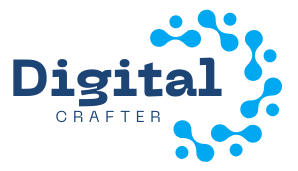Creating an authority site has always been a mechanism for building trust, driving traffic, and generating sustainable online income. In the past, this required a huge investment of time and effort to research, write, and promote high-quality content consistently. However, with the rapid advancement of technology, especially artificial intelligence (AI), it’s now possible to build authority sites faster and more efficiently using AI-powered content tools.
Understanding Authority Sites
An authority site is a website recognized as a credible, trustworthy, and valuable source of information in a particular niche. These sites are often rewarded by search engines with higher rankings, and they benefit from increased user engagement and backlinks from other websites.
Building an authority site requires five key ingredients:
- A clearly defined niche
- High-quality, informative, and engaging content
- Strong domain authority and backlinks
- A growing and loyal audience
- Consistent branding and user experience
Historically, creating all of this content manually was time-consuming. But things are changing rapidly, and AI is playing a transformative role in how content is created and managed.
How AI-Powered Content Tools Are Transforming Website Building
Today’s AI tools can automate and assist with much of the heavy lifting involved in content production. From ideation to publishing, these tools are capable of delivering machine-generated content that is both informative and SEO-optimized.
Here are some of the most common ways AI is changing the game for authority site builders:
1. Efficient Content Creation
AI tools like ChatGPT, Jasper, and Copy.ai allow users to generate content at scale. These platforms can create full blog posts, product descriptions, landing pages, social media captions, and more with minimal guidance.
- Speed: What once took hours can now be done in minutes.
- Consistency: Language, tone, and style can be maintained across hundreds of articles.
- Cost-effectiveness: Reduces the need for large content teams.

2. Keyword Research and Optimization
Establishing topical authority requires strategic SEO, and AI tools can be invaluable in this area. Software like Surfer SEO, MarketMuse, and Clearscope analyze competitors and keyword data to suggest relevant content topics and optimize on-page SEO.
Some benefits include:
- Identifying low-competition, high-volume keywords
- Outlining content structures for better ranking
- Helping you maintain semantic relevance
3. Personalization and User Engagement
Using machine learning algorithms, website owners can now personalize the user journey based on behavior. AI tools can recommend blog posts, send customized email sequences, and adjust on-site content for maximum engagement.
This not only improves time-on-site metrics but also builds trust and loyalty—two key elements of building authority.
4. Automated Content Planning
Your content calendar doesn’t need to live on sticky notes anymore. Platforms like Frase and Outranking use AI to create data-driven editorial calendars. They forecast trends, align with your SEO goals, and ensure that your site continuously publishes content that resonates with your audience.

Balancing AI Efficiency with Human Touch
While AI can do a lot, it’s important to maintain a human touch. Readers can often tell when content is robotic or lacks substance. Here are some best practices to keep your content relatable while using AI:
- Edit ruthlessly: Always have a human editor review AI-generated content before it goes live.
- Add real-world experience: Include case studies, personal anecdotes, or expert insights that AI can’t produce.
- Keep it updated: AI may generate outdated or incorrect facts, so ensure information is verified during editing.
Combining the speed of AI with the empathy and intelligence of human writers produces a winning formula. The goal should be to create helpful and trustworthy content that benefits readers.
Step-by-Step Guide to Building an Authority Site with AI Tools
If you’re considering using AI to begin or scale your authority site, follow this structured plan:
Step 1: Choose a Profitable Niche
Select a niche that has clear audience demand, monetization opportunities, and manageable competition. AI tools like Google Trends and SEMrush can help analyze niche viability quickly.
Step 2: Set Up Your Website
Use platforms like WordPress or Webflow and choose an SEO-friendly theme. Most importantly, keep the user experience simple and fast-loading.
Step 3: Perform Keyword Research
Use AI tools such as Ahrefs, Ubersuggest, or Surfer SEO to conduct deep keyword research. These will help you understand what your audience is searching for and how to rank for those terms.
Step 4: Generate High-Quality Content
Leverage AI copywriting tools to generate long-form articles, FAQ sections, and other useful site content. Always add your unique insights to keep it genuine and differentiated.
Step 5: On-Page SEO and Optimization
Use AI tools to optimize meta tags, headlines, internal links, and content structure. This helps your content comply with search engine best practices effortlessly.
Step 6: Build Backlinks and Authority
AI tools can also help with outreach by crafting emails and analyzing backlink opportunities. Tools like Respona or BuzzStream improve the efficiency of link-building campaigns.
Step 7: Monitor and Improve
Track performance using Google Search Console, Analytics, and AI analytics tools like PaveAI or Databox to derive actionable insights. Use these data points to refine your content strategy.
Popular AI Tools for Authority Site Builders
To get started, consider testing out these platforms that are already helping site owners achieve remarkable results:
- Jasper AI: Best for writing high-quality content fast.
- Surfer SEO: Excellent for content optimization and keyword alignment.
- Frase: Ideal for content research and question-answer formats.
- Copy.ai: Useful for marketing copy and short-form content.
- MarketMuse: Great for content planning, auditing, and competitive analysis.

Challenges and Getting It Right
AI can fast-track content production, but pitfalls exist. One mistake is publishing too much content too fast without deep value or originality. Also, relying solely on AI for content decisions without human oversight can lead to inconsistent quality and even misinformation.
To avoid these pitfalls:
- Use AI as an assistant, not a replacement.
- Continue investing in learning and adapting to search engine algorithms.
- Employ human editors, subject-matter experts, and fact-checkers.
Conclusion
AI-powered content tools have unlocked new opportunities for entrepreneurs, bloggers, and marketers to build authority sites faster, smarter, and more effectively than ever before. While they reduce the manual workload, the secret to long-term success remains the same: understand your audience, solve real problems, and consistently deliver trustworthy, engaging content.
Embrace AI as a powerful co-pilot in your content journey—but remember that human insight, creativity, and authenticity will always be what makes a site truly authoritative.

